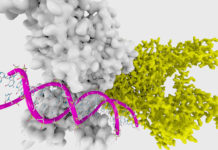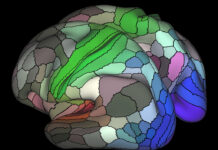The Trouble with Twin Studies
As most readers are aware, it is widely believed that both within and without of psychiatry genetic factors play an important role in causing major psychiatric disorders such as schizophrenia, bipolar disorder, major depression, ADHD, autism, anxiety, and even post-traumatic stress disorder (PTSD). Twin studies provide the main pillar of support for this belief which is often, though mistakenly, presented as a scientific fact.
Mental Health Professionals Critique the Biomedical Model of Psychological Problems
While a great deal of the excitement about advances in psychological treatments comes from the potential for research in neuroscience to unlock the secrets of the brain, many mental health experts would like to temper this enthusiasm. A special issue of the Behavior Therapist released this month calls into question the predominant conception of mental illnesses as brain disorders.
Brain Disease or Existential Crisis?
As the schizophrenia/psychosis recovery research continues to emerge, we discover increasing evidence that psychosis is not caused by a disease of the brain, but...
Search for Schizophrenia Gene Marches On
In a study released June 6, 2012 through the online journal Behavioral and Brain Functions, researchers from Japan acknowledge that "the results of association...
Comments on Jeffrey Lieberman and Ogi Ogas’ Wall Street Journal Article on the Genetics...
The March 3rd, 2016 edition of the Wall Street Journal featured an article by past President of the American Psychiatric Association (APA) Jeffrey Lieberman and his colleague, computational neuroscientist Ogi Ogas. The article was entitled “Genetics and Mental Illness—Let’s Not Get Carried Away.” In their piece, the authors started by expressing the belief that a recent study identified a gene that causes schizophrenia, and then discussed whether it is desirable or possible to remove allegedly pathological genes in the interest of creating a future “mentally perfect society.” The authors of the article, like many previous textbook authors, seem unfamiliar with the questionable “evidence” put forward by psychiatry as proof that its disorders are “highly heritable” In fact, DSM-5 Task Force Chair David Kupfer admitted that “we’re still waiting” for the discovery of “biological and genetic markers” for psychiatric disorders.
Why Precision Psychiatry is Not a Paradigm Shift
A letter just published in JAMA Psychiatry suggests that “precision psychiatry” is not the paradigm shift it’s purported to be by the psychiatric establishment.
The Latest Gene Finding Claim in Psychiatry
On February 28th, the New York Times reported the latest psychiatric disorder “gene finding” claim in an article entitled “5 Disorders Share Genetic Risk Factors, Study Shows,” The Times reporter described a study that claimed to have identified shared genes associated with five psychiatric disorders: autism spectrum disorder, attention/deficit-hyperactivity disorder (ADHD), bipolar disorder, major depressive disorder, and schizophrenia. We have seen thousands of such claims in psychiatry since the 1960s, and we have also seen that these claims do not survive replication attempts.
A Critique of Genetic Research on Schizophrenia – Expensive Castles in the Air
In the light of the much trumpeted claims that recent research has identified genes for schizophrenia, it is important to review the track record of this type of endeavor. Despite thousands of studies costing millions of dollars, and endless predictions that the genetics of schizophrenia would shortly be revealed, the field has so far failed to identify any genes that substantially increase the risk of developing schizophrenia.
It is Time to Abandon the Candidate-Gene Approach to Depression
The candidate-gene approach to depression goes unsupported and is likely based on bad science, new research finds.
The Genetics of Schizophrenia: A Left Brain Theory about a Right Brain Deficit in...
In recent months, two teams of researchers in the UK and the US published complementary findings about the epigenetic origins of schizophrenia that have scientific communities who indulge in ‘genetic conspiracy theories’ abuzz. While these results are intriguing, and no doubt involve pathbreaking research methodologies, this line of thought represents a decontextualized understanding both of the symptoms that are typically associated with schizophrenia, and their causes.
Schizophrenia and Genetics: A Closer Look at the Evidence
“The substantial hereditary component in schizophrenia,” a pair of researchers wrote in 1993, “is surely one of the two or three best-established facts in psychiatry.” But is it really? For mainstream psychiatry and psychiatric genetics, schizophrenia is “a severe mental disorder with a lifetime risk of about 1%, characterized by hallucinations, delusions and cognitive deficits, with heritability estimated at up to 80%,” or a “highly heritable neuropsychiatric disorder of complex genetic etiology.” Many commentators have challenged these claims, and some have challenged the concept of schizophrenia itself.
Quotations From the Genetics “Graveyard”: Nearly Half a Century of False Positive Gene Discovery...
In a 1992 essay, British psychiatric genetic researcher Michael Owen wondered whether schizophrenia molecular genetic research would become the “graveyard of molecular geneticists.”1 Owen predicted that if major schizophrenia genes existed, they would be found within five years of that date. He was optimistic, believing that “talk of graveyards is premature.”2 Owen now believes that genes for schizophrenia and other disorders have been found, and was subsequently knighted for his work. Despite massively improved technology, however, decades of molecular genetic gene finding attempts have failed to provide consistently replicated evidence of specific genes that play a role in causing the major psychiatric disorders.
“Bewitching Science” Revisited: Tales of Reunited Twins and the Genetics of Behavior
In this article I will attempt to debunk one of the great “scientific” smoke and mirrors shows of the past half century—the claim that stories of reunited separated MZ (monozygotic, identical) twin pairs indicate that heredity plays a major role in causing human behavioral differences. These stories, which are often used to sell the false ideology of genetic determinism, have entered the public imagination in a way that academic research results never could. Here I will show that these stories provide no evidence whatsoever that (as yet undiscovered) “genes for behavior” influence human behavioral development.
Disease Theory of ‘Mental Illness’ Tied To Pessimism About Recovery
Researchers recently completed a first of its kind, large-scale international survey of attitudes about mental health and they were surprised by the results. According to their analysis published in this month’s issue of the Journal of Affective Disorders, people in developed countries, like the United States, are more likely to assume that ‘mental illnesses’ are similar to physical illnesses and biological or genetic in origin, but they are also much less likely to think that individuals can overcome these challenges and recover
Biology and Genetics are Irrelevant Once True Causes are Recognized
The psychiatric genetics literature contains few references to specific environmental factors that cause psychiatric disorders, and while researchers acknowledge a role for these factors, they usually claim that environmental causes are mysterious or unknown. As a leading group of psychiatric genetic researchers recently put it, while claiming that schizophrenia “has a substantial genetic contribution,” the “underlying causes and pathogenesis of the disorder remains unknown.” But research suggests otherwise.
Researchers Question Link Between Genetics and Depression
A new study, published in the journal Molecular Psychiatry, found no link between genetics and the occurrence of depressive symptoms.
Twin Studies and the “Nonreplication Curse” in Psychiatric Molecular Genetic Research
Psychiatric molecular genetic research has failed to discover genes that underlie the major psychiatric disorders, the existence of which twin and adoption studies are assumed to have established. "Genome-wide complex trait analysis" (GCTA) was developed a few years ago as a means of solving what researchers call the "missing heritability" problem. One researcher believed that the new GCTA method would “drive a stake through the heart of” criticism of behavioral genetic theories and methods, and would finally put criticism of twin studies “to rest.” The opposite scenario appears to be playing out, however, as leading behavioral genetic and psychiatric genetic researchers struggle to prevent some recent negative GCTA findings and the obvious false assumptions underlying twin research from driving a stake through the heart of twin studies themselves.
Direct-to-Consumer Genetic Testing is Often Wrong
Direct-to-consumer (DTC) genetic testing has an “alarmingly high” 40% false-positive rate.
Philosophers Challenge Psychiatry and its Search for Mechanisms of Disorder
Attempting to locate the mechanisms of psychiatric disorder is a step in the wrong direction and fails to challenge potentially unjust social practices.
Large Study Finds Epigenetic Changes Associated with Trauma Explained by Smoking
A new study suggests that epigenetic changes that have been associated with trauma may actually be due to environmental toxins.
Brain Imaging Reveals Psychiatric Disorders are Not Neurological Disorders
Some researchers have been arguing to reclassify all psychiatric disorders as diseases of the brain and nervous system, similar to epilepsy or Parkinson's disease. Neuroimaging research, however, reveals that psychiatric disorders appear to be distinct from neurological disorders, according to a new study published in this month’s issue of the British Journal of Psychiatry.
Genetic Protection Against Schizophrenia?
On November 12, 2013, Molecular Psychiatry published online Evidence That Duplications of 22q11.2 Protect Against Schizophrenia, by Rees et al. The print version was published last month – January 2014. The idea of a genetic mutation that would protect one from schizophrenia aroused a good deal of interest and enthusiasm. The paper has added some impetus to psychiatry's claim that the condition known as schizophrenia is a genetic disease. For this reason, I thought it might be helpful to take a closer look at the study.
Genetics of Bipolar Disorder
Research from the Semel Institute for Neuroscience and Human Behavior at USC finds that "The standard concept of genetic testing includes at least three...
New Study Raises Doubts About fMRI Neuroimaging Research
More than forty thousand papers have been published using functional magnetic resonance imaging (fMRI) technology to explore the brain. A new analysis of the common...
Ernst Rüdin’s Unpublished Family Study of “Manic-Depressive Insanity” and the Genetics of Bipolar Disorder
Although it is axiomatic in psychiatry that genetic factors are involved in bipolar disorder (manic-depression), and that they play a predominant role, there currently exists little if any scientifically acceptable evidence that bipolar disorder and other “affective disorders” are caused by disordered genes. Given almost 50 years of gene discovery claims that were not confirmed by replication attempts, we must assume by default that current gene finding claims are false-positive results as well. In the 1920s, pioneering psychiatric geneticist Ernst Rüdin decided against publishing his large family study of “manic-depressive insanity,” most likely because the results did not fit his theories of Mendelian inheritance, and failed to support his advocacy of eugenic policies.
















